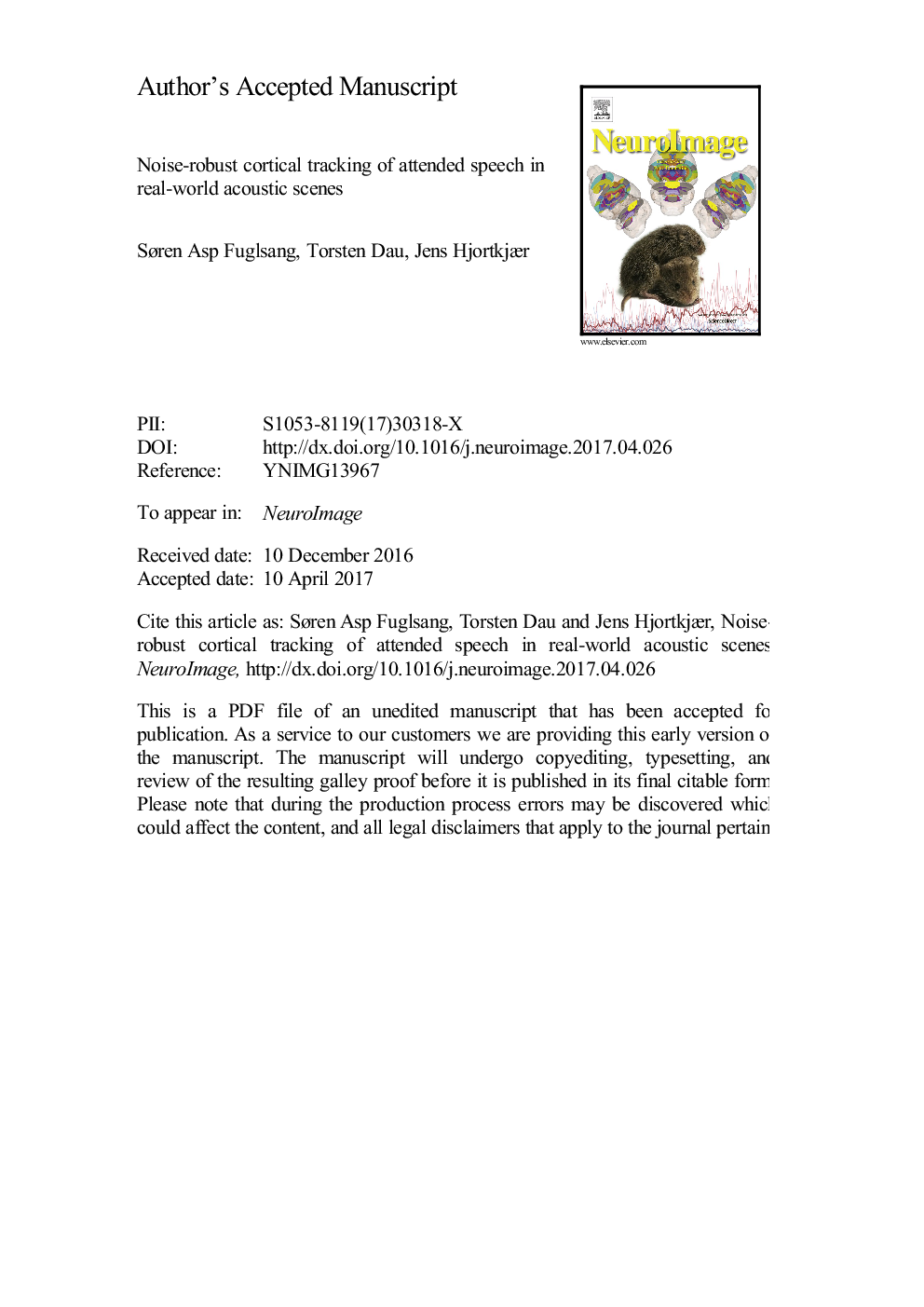ترجمه فارسی عنوان مقاله
ردیابی کورکورانه قوی از سخنان سخنگو در صحنه های آکوستیک واقعی در جهان
عنوان انگلیسی
Noise-robust cortical tracking of attended speech in real-world acoustic scenes
| کد مقاله | سال انتشار | تعداد صفحات مقاله انگلیسی |
|---|---|---|
| 158985 | 2017 | 37 صفحه PDF |
منبع

Publisher : Elsevier - Science Direct (الزویر - ساینس دایرکت)
Journal : NeuroImage, Volume 156, 1 August 2017, Pages 435-444

